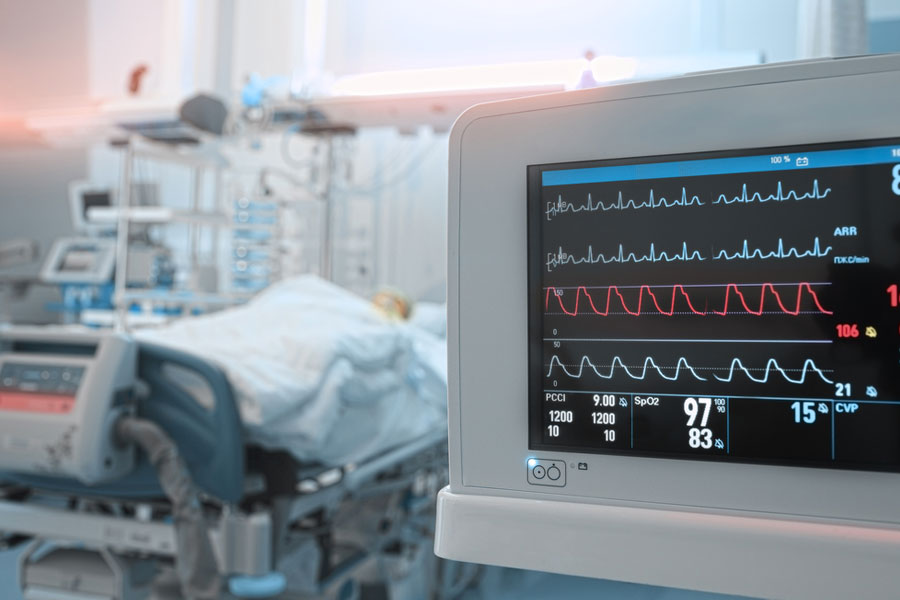At least two Indian healthcare chains have folded up business in Bangladesh over the past few years because of the preference for Indian doctors among many Bangladeshi patients and a system there that makes hiring medics from other countries difficult.
A third chain is still running a unit in Chittagong.
Thousands of patients from Bangladesh come to Calcutta for treatment every year. Many are not getting medical visas now because of the ongoing trouble in Bangladesh.
Devi Shetty’s Narayana Health used to run a 65-bed cardiology unit in a private hospital in Chittagong. The Fortis group used to run a 150-bed unit in Khulna.
Both groups have ceased operations in Bangladesh and sources said the ventures were not viable.
Apollo Hospitals has been managing the private hospital in Chittagong since 2022 after inking an agreement with Imperial Hospital. The facility is now called Apollo Imperial Hospital.
Narayana Health (NH) ran the cardiology unit at Imperial Hospital from 2019 to 2021. “It was becoming unviable to run the unit,” said a source in the NH group.
According to sources, Indian doctors practising in Bangladesh need permission from Bangladesh Medical & Dental Council.
“It would take more than six months to get permission. If a doctor returned to India for a one-month holiday, sending a replacement was impossible because it would take another six months to get permission for the new doctor,” said a source in NH.
“So, for the position of every one Indian doctor, two had to be sent.”
According to sources, NH representatives held talks with the Bangladeshi authorities to ease the process of getting permission but there was no change on the ground.
Also, hospitals have been mandated by government policy to hire five Bangladeshi doctors for every Indian doctor, the sources said.
Fortis ran a 150-bed hospital in Khulna for around five years before withdrawing. Sources cited viability issues for the decision.
Another big hurdle faced by hospitals run by Indian groups was the reluctance of many patients from Bangladesh to consult local doctors.
“There is a perception among many patients here that Indian doctors and hospitals are better than Bangladeshi ones. Many seek advice from friends and neighbours who say treatment in India is better. This despite the improvement in skills and infrastructure in the healthcare sector in Bangladesh over the past few years,” Rabiul Husain, the chairman of Imperial Hospital in Chittagong, told Metro on Wednesday.
“Also, we need trained nurses and other staff, along with doctors. Healthcare management is very important,” he said.
“We need doctors here to be trained by experts from other countries like India. But there is a delay in getting permission for doctors from other countries. The issue should be looked into.”
Husain said Apollo Hospitals is managing the 375-bed facility, in collaboration with Imperial, with Indian and Bangladeshi doctors.
Many Bangladeshi patients who came to Calcutta recently for treatment said they had been advised by their friends and relatives to come to India.
Juman Das from Narsingdi, in Bangladesh, got his mother Debi Das admitted to the RN Tagore International Institute of Cardiac Sciences for a coronary artery bypass grafting (CABG).
“Initially, I took my mother to a cardiac hospital in Dhaka. A nurse there advised us to go to India for better treatment. Our friends and relatives, who come to India often for treatment, gave the same advice,” said Das.
He said the CABG cost about ₹50,000 less at the Mukundapur hospital compared with the estimates given by the Dhaka hospital.
Swapna Biswas from Khulna, who is suffering from lung cancer, was another patient who came to the RN Tagore hospital.
“I first went to a hospital in Khulna and then Dhaka, but the doctors there were unable to detect the disease. Then I went to Christian Medical College in Vellore, as advised by relatives and friends in Khulna,” she said.
“From there, I have to come to Calcutta.”











